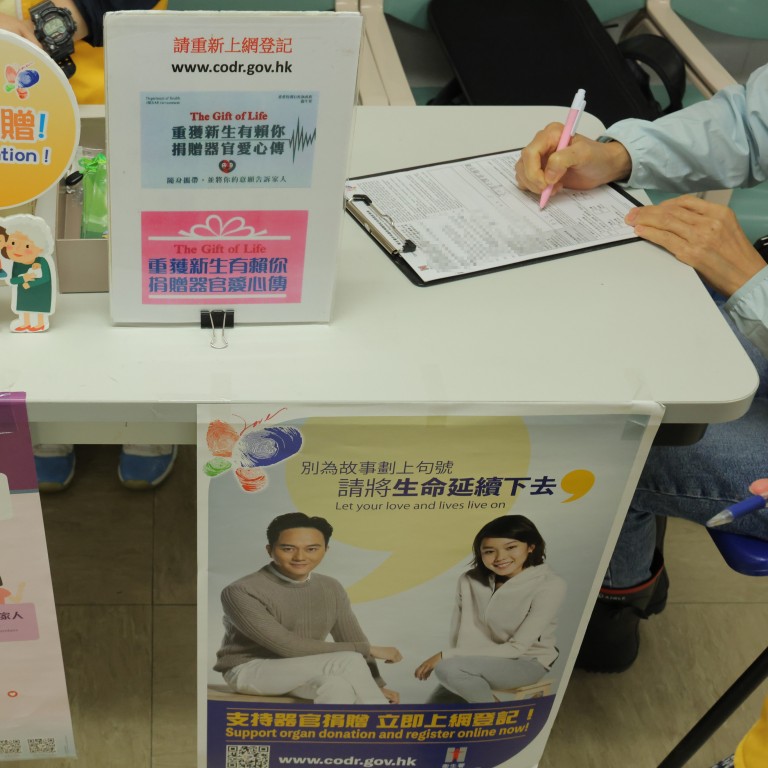
Letters | High-handed response to Hongkongers pulling out of organ donor scheme further erodes trust
- Readers discuss the Hong Kong government’s response to withdrawals from the organ donor register, the need for a science-based review of the city’s Covid strategy, and the EU’s treatment of China
Altruism is based on mutual trust and solidarity among members of a community. Various studies have highlighted the importance of social trust in influencing acts of volunteering, among which organ donation is one of the noblest.
Lee has asked the police to look into the “suspicious act” of people withdrawing from the organ donation register even though they weren’t registered. It should be pointed out that the programme does not in fact provide a way for people to check their registration status.
The government’s high-handed manner only reinforces the long-standing distrust between the authorities nd residents, and fails to address Hongkongers’ concern over any cross-border arrangement.
Unfortunately, this will further erode Hong Kong residents’ trust in institutions and their willingness to donate their organs. There is no doubt that, without Hongkongers’ willing cooperation and participation, the organ donation scheme will collapse.
The Hong Kong government must ensure that the cross-border organ donation system is accountable and that donors’ wishes are fully honoured. By doing so, the government may be able to rebuild Hongkongers’ trust in institutions.
Vincent Wen, Tuen Mun
Learning Covid lessons must not mean more of the same
Fair enough.
What’s needed for proper “lessons learned” is a thorough look at the effects of these policies not just here, but around the world – a thorough, hard-nosed, scientific look.
Strict lockdowns damaged the economy everywhere they were implemented. Outdoor “social distancing” rules were capricious and ineffective.
Could we not pay any attention to studies, such as the one quoted in the article which found that 72 per cent of a random group of Hongkongers would be happy to mask up in indoor medical facilities. How many of them know of the findings of the randomised controlled trials on masking? I suggest very few. Taking note of these is like doing public health policy by vox pop. It’s not a good idea.
In sum, if we’re going to do a “lessons learned” post mortem, let’s make it a proper, independent and truly science-based one, not a populist “rinse and repeat”.
Peter Forsythe, Discovery Bay
Borrell should be thanking China, not criticising it
In March this year, Borrell said that Chinese President Xi Jinping’s trip to Moscow earlier that month had reduced the risk of nuclear war. US Secretary of State Antony Blinken admitted as much, when he told The Atlantic in February that influence from countries like China and India had had a restraining effect on Russia.
In other words, China effectively helped save the world from a nuclear disaster.
But instead of thanking China, Borrell continues to criticise China’s stance on the Ukraine war – logic enough to make George Orwell turn in his grave, and how very ungrateful.
W.L. Chang, Discovery Bay

